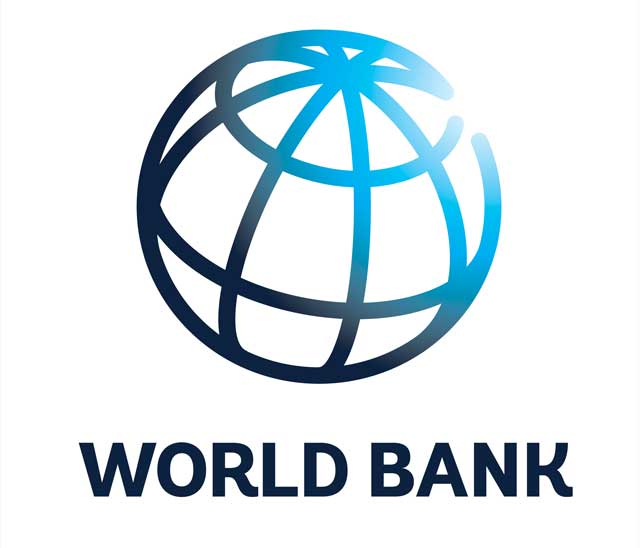
Kampala, Uganda | THE INDEPENDENT | The World Bank has advised the government to focus on budget discipline this financial year if the fiscal policies are to benefit the citizens and the nation as a whole.
The financial year2023/2024 was characterized not only what has been termed non-prioritized spending, but also supplementary budgets that exceeded earlier plans, and in essence violated government’s policies.
These practices, apart from denying areas the needed allocations for better services, also led to an increase in public borrowing and general indebtedness.
“Poor planning, the routine use of supplementary budgeting, and weaknesses in overall public financial management have led to overspending, fiscal slippages, and the sustained accumulation of domestic arrears,” says the World Bank in its 23rd Uganda Economic Update.
During the first half of the 2023/2024 financial year, the government paid down 164 billion shillings in domestic arrears, yet it did not result in a significant reduction in the burden, according to the Bank.
“While this amount exceeded the target by 5 percent, it was still too small to address the growing problem of arrears, especially as the government continues to tighten spending as part of its fiscal consolidation.”
According to the Auditor General’s Report for the year 2022/2023, by June 2023 total domestic arrears had increased by 34 percent to 10.8 trillion shillings, amounting to 20.6 percent of the revised national budget.
In the next financial year, the government has allocated 217 billion shillings to clear domestic arrears, while, amounts totaling 2.7 trillion shillings have gone to what experts call wasteful expenditure.
Special meals and drinks 300 billion, welfare and entertainment 137 billion, travel abroad 114 billion, and official ceremonies and state functions 36 billion shillings, among others, which are all either unnecessary or overstated, according to ISER (Initiative for Social and Economic Rights).
“The persistent accumulation of arrears indicates a failure in the commitment-control system and runs contrary to the 2021 Domestic Arrears Strategy,” says the World Bank.
Similarly, it adds, the repeated use of supplementary budgets, sometimes funded through borrowing, is inconsistent with the budgetary discipline necessary to implement the fiscal consolidation agenda.
During the first three quarters of the year just ended, for example, a supplementary budget of 4.6 trillion shillings (9.1 percent of the approved budget) was adopted to finance the State House and the President’s Office, as well as the public health and security sectors.
The expenditures had already surpassed 2.8 trillion (5.7 percent of the approved budget).
This level of excess spending is almost three times the limit of 3 percent established by the 2015 Public Finance Management Act (FMA).
The supplementary expenditures were financed partly by internal budget cuts, which hindered the implementation of plans and activities, and partly by anticipated borrowing.
“These practices undermine the credibility of the budget and make it difficult to achieve fiscal objectives,” the report says.
While there was hope for improved discipline as supplementary spending declined for three years to about 5.7 percent of the 2022/2023 budget, this trend has since reversed.
Over the first three quarters to March 2024, approved supplementary spending amounted to 4.54 trillion, or 8.9 percent of the approved budget for the financial year 2023/2024.
While the State House and Ministry of Defense tend to be among the main recipients of supplementary spending, the practice is spread across many ministries, departments, and agencies.
This, according to the World Bank, implies that it has become the norm for budgeting in Uganda.
In the current fiscal year, the largest shares of supplementary spending went to the Ministry of Science, Technology and Innovation, local governments, the State House, the Ministry of Energy and Mineral Development, and the National Identification and Registration Authority.
There is fear that supplementary spending continues to undermine the credibility of annual planning and budgeting, especially considering the activities for which these expenditures are made which are foreseeable.
Supplementary spending was used to finance support for investments in the pharmaceutical industry under DEI BioPharma Ltd; startup costs for the Karuma hydropower plant; and the procurement of the new National Security Information System; among others.
“Resources for these activities could have been allocated through the annual budget, and they likely fail to meet the definition of “unavoidable and unforeseeable” costs that would justify supplementary spending under the 2016 Public Finance Management Regulations”.
Experts say that in addition to distorting the budget, supplementary spending reduces the transparency of the budgeting process and alters expenditure priorities.
For example, the 2023/2024 supplementary budget exceeded the total amount that the government spent on health and agriculture for fiscal year 2024.
The report says that in addition to undermining public financial management, supplementary budgeting heightens macroeconomic risks.
The government proposed to allocate 578.4 billion shillings for the acquisition of equity in DEI Pharma Limited, associated with Mr Matias Magoola, amidst questions as to why this should not be put in the annual budget instead of supplementary requests.
When a supplementary expenditure is approved, it means that the additional resources to finance it are mainly obtained through borrowing, which has adverse implications for debt management.
MP Ibrahim Ssemujju Nganda, while debating this money (for DEI Pharma) in parliament, said it was being deducted from the allocation for debt repayment, which, according to him, was illegal.
Supplementary budgets also impact private investments because a large share of this borrowing is domestic, which crowds out credit to the private sector.
On public service delivery, these additional costs are offset by internal budget cuts, which disrupt the implementation of approved programs and investments including vital human capital support, and may also increase domestic arrears.
***
URN
 The Independent Uganda: You get the Truth we Pay the Price
The Independent Uganda: You get the Truth we Pay the Price



